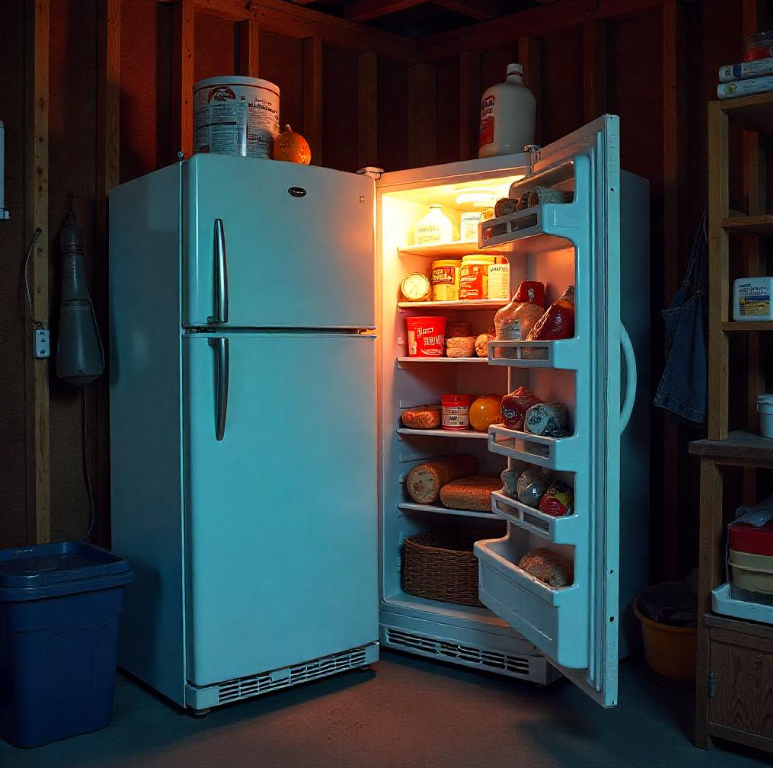Refrigerators are essential appliances in every home, designed to keep our food fresh and safe. But what happens when your fridge starts freezing your food unexpectedly? It can be frustrating and confusing. If you’ve ever asked yourself, why is my refrigerator freezing my food you’re not alone. This common issue can happen for several reasons, and understanding them can help you fix the problem quickly and prevent food waste.
In this article, we will explore the main causes of a refrigerator freezing your food, how to diagnose the issue, and what practical steps you can take to solve it. By the end, you’ll know how to keep your fridge working correctly and your food stored at the perfect temperature.
Common Reasons Why Your Refrigerator Freezes Food
Refrigerators are designed to maintain temperatures between 35°F and 38°F (1.7°C and 3.3°C), which keeps food fresh without freezing it. However, if your food is freezing, it means the temperature inside the fridge is too low or uneven. Here are the top reasons why this happens:
1. Incorrect Temperature Settings
The most common reason is that the temperature setting is too low. Sometimes, the fridge dial is accidentally turned down too much, causing the entire fridge to become colder than necessary. Ideally, set your fridge temperature to around 37°F (3°C).
Example: A user found their fridge set at 28°F (-2°C), which was freezing their milk and vegetables. Adjusting it to 37°F immediately solved the problem.
2. Faulty Thermostat
The thermostat controls the fridge’s cooling system. If it’s broken or malfunctioning, it may cause the fridge to cool excessively. This can lead to freezing in areas near the cooling vents.
3. Blocked Air Vents
Cold air circulates inside the refrigerator through vents. If these vents are blocked by food items or ice buildup, the cold air cannot distribute evenly, causing some areas to become very cold and freeze food.
4. Damaged Door Seals
If the fridge door doesn’t seal properly, cold air can escape and cause the cooling system to work harder, potentially overcooling certain spots inside the fridge.
How to Identify and Fix Refrigerator Freezing Food Issues
If you are dealing with a fridge that freezes food unexpectedly, it’s helpful to inspect and troubleshoot using these steps:
Step 1: Check the Temperature Setting
Locate your refrigerator’s temperature control dial or digital panel. Make sure it is set to around 37°F (3°C). If it’s lower, adjust it to the proper temperature and monitor for changes over 24 hours.
Step 2: Inspect Air Vents
Look inside the fridge for air vents and ensure they are not blocked by containers or large items. Clear any obstruction to allow cold air to flow freely. Also, check for frost buildup near the vents and defrost if needed.
Step 3: Examine Door Seals
Close the fridge door on a dollar bill or piece of paper. If you can easily pull the paper out without resistance, the seal may be damaged and need replacement. Good door seals keep cold air inside and prevent uneven cooling.
Step 4: Test the Thermostat
If adjusting the temperature doesn’t help, the thermostat might be faulty. You may need to contact a professional technician to test and replace the thermostat if necessary.
Real-Life Example: How Fixing the Fridge Stopped Freezing Food
One homeowner noticed their fresh fruits and vegetables were freezing in the fridge drawers. After some research, they found helpful advice on refrigerator freezing food issues online. They discovered their fridge temperature was set too low, and the vents were partially blocked by food containers. After adjusting the temperature and rearranging the food to clear the vents, the freezing stopped, and their food stayed fresh for longer.
Why Ignoring a Freezing Fridge Can Be Costly
Freezing food in the refrigerator can lead to several problems:
- Food Waste: Frozen fruits and vegetables can become mushy and lose flavor once thawed.
- Nutritional Loss: Some nutrients degrade with freezing and thawing cycles.
- Energy Waste: A fridge that overcools may use more electricity, increasing utility bills.
- Appliance Damage: Continuous overcooling stresses components, potentially leading to expensive repairs.
Addressing the issue early not only preserves your food but also saves money and extends the life of your appliance.
Summary and Opinion
If you’ve ever wondered, why is my refrigerator freezing my food, it’s usually due to simple issues like temperature settings, blocked vents, or faulty parts. By carefully checking these areas and making small adjustments, you can quickly fix the problem and enjoy fresh, well-preserved food.


